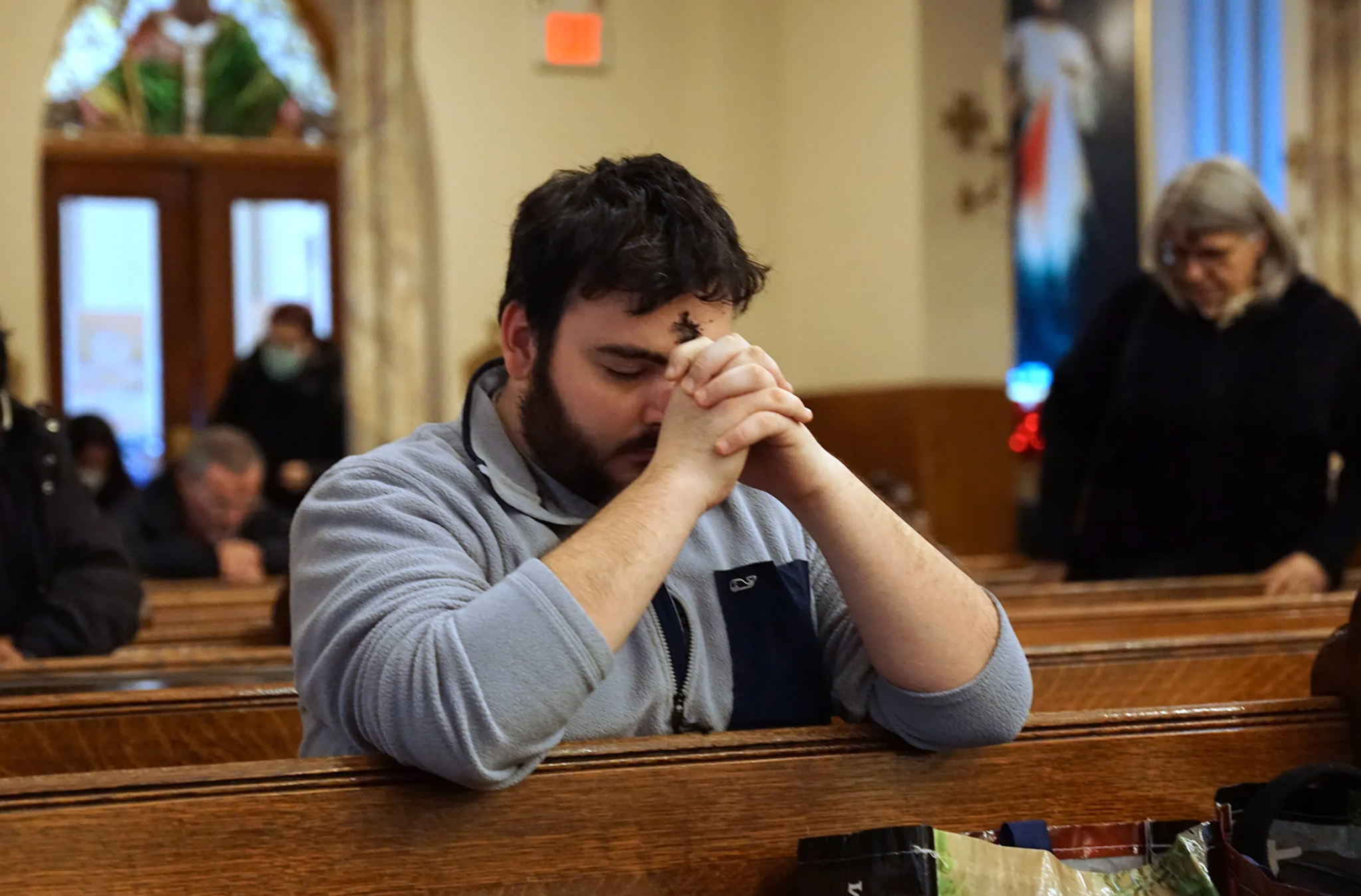Lent begins Feb. 14 – how to be prepared
Ash Wednesday begins the season of Lent, a 40-day period of prayer, penance, almsgiving, and fasting Intended to prepare Catholics for Easter and bring them closer to God.
As they enter into Lent, which runs from Feb. 14 until sundown on Holy Thursday, March 28, this year, the faithful are reminded that Ash Wednesday and Good Friday are obligatory days of fasting for Catholics. In addition, Fridays during Lent are obligatory days of abstinence from meat.
Feb. 13, Shrove Tuesday, is set aside as a day for preparation for the Lenten season. Also called “Fat Tuesday,” “Mardi Gras,” or “Carnival,” it is observed by many Christians by going to confession and burning the previous year’s Holy Week palms to create ash for Ash Wednesday, and finalizing your Lenten sacrifice.
Baking was also a well-practiced tradition on the Tuesday before Lent because abstinence from meat used to include all animal products. Christians would use up their milk, butter, and eggs to make and eat pancakes or cakes on Fat Tuesday.
So, what exactly is expected of the faithful during Lent?
Father John Gordon, Secretary for Evangelization for the Archdiocese of Newark, suggests that the faithful go to confession on Saturday before Ash Wednesday to prepare for the 40 days of prayer and abstinence.
For Catholics ages 18-59, fasting occurs on Ash Wednesday and Good Friday, when one large meal can be eaten. Two small meals that equate to one large meal can also be consumed. On Fridays throughout Lent, Catholics 14 or older must abstain from eating meat, said Father John J. Chadwick, Vicar General of the Archdiocese of Newark.
“The obligation to observe the laws of fast and abstinence ‘substantially,’ or as a whole, is a serious obligation,” Father Chadwick said.
Those who are pregnant, nursing, or have health or mental conditions are excused from both fasting and abstinence, Father Chadwick added.
The U.S. Catholic Conference of Bishops stresses that “common sense should prevail” and that no one should jeopardize their health to fast.
Should we also abstain daily from something we love?
Giving up something for all of Lent such as candy, donuts, alcohol, or smoking is a tradition but not obligatory. It represents a sacrifice and Jesus’ 40 days of fasting in the desert. We can give up something bad for us or do something extra that is good for us, such as reading the Bible or attending daily Mass. Whether you decide to give something up or do something extra, it should be something meaningful. It’s also an opportunity to improve one’s lifestyle by continuing positive habits after Lent, Father Gordon said.
Easter Sunday always falls on the first Sunday after the Paschal Full Moon — the full Moon that occurs on or after the spring equinox. That is why the date moves from year to year. This year it is on March 31.
Lent is 40 days because that number indicates a time of testing, trial, penance, purification, and renewal. In the New Testament, 40 days is the length of time Jesus spent in the wilderness, enduring the temptation of Satan, and preparing to begin his ministry.
Since the six Sundays that fall within the 40 days of Lent are not technically part of the season, many believe they are excused from abstaining on that day. Although that is the tradition, Father Gordon recommends that we attempt to not break our discipline or penance for a day to reflect Lent’s true meaning.


